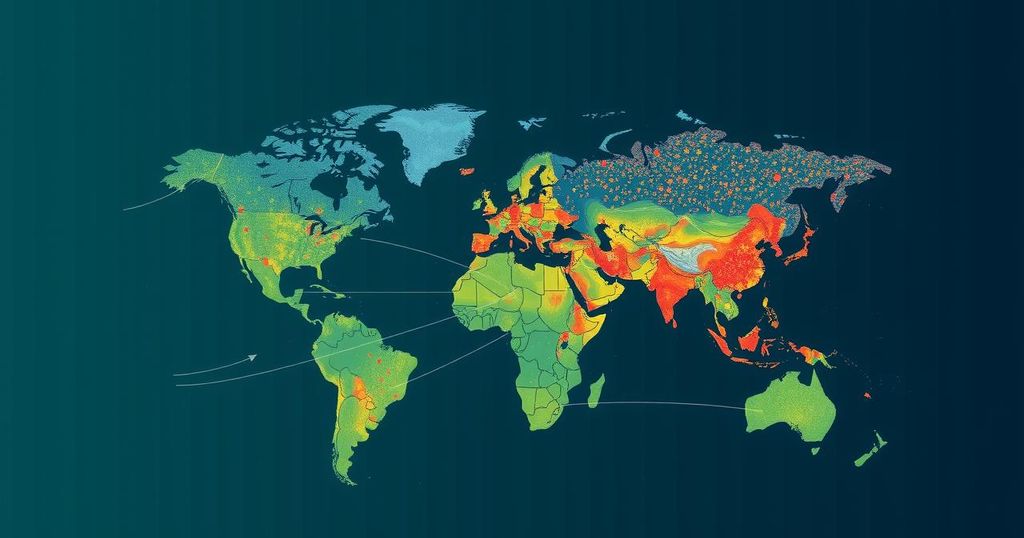The Lancet Countdown report reveals alarming health impacts of climate change, including record heat-related deaths and increased disease spread. With fossil fuel subsidies rising and global emissions continuing, the findings underscore a need for urgent action to address these challenges. However, there are positive indicators of progress in pollution reduction and renewable energy adoption.
A recent report from the Lancet Countdown highlights the escalating threats that climate change poses to global public health, identifying record-breaking dangers that have emerged over time. As the world braces for what is projected to be the hottest year on record, with an increase in heatwaves, wildfires, hurricanes, droughts, and floods, this report underscores the urgent need for immediate action to mitigate these impacts. The analysis, which involved contributions from 122 experts involving agencies such as the World Health Organization, reveals that of the 15 indicators monitored over the past eight years, ten have reached alarming new highs. Noteworthy findings include a significant rise in heat-related deaths among the elderly, with a startling 167 percent increase since the 1990s, a surge in vector-borne diseases like dengue — which surpassed five million cases in the previous year — and widespread food insecurity stemming from adverse weather conditions. Marina Romanello, the executive director of Lancet Countdown, emphasized the unprecedented health threats faced by populations globally, stating that the situation has deteriorated to levels not previously observed. Furthermore, the report highlights the detrimental role of fossil fuel consumption and government subsidies, which reached a staggering $1.4 trillion in 2022, thwarting progress toward a healthier future. However, the report also notes some positive trends, such as a nearly seven percent decrease in deaths attributed to fossil fuel-related air pollution and a substantial increase in the use of renewable energy for electricity generation, which has seen almost doubling since 2016. As global climate discussions approach, Romanello maintains that timely intervention is crucial. She advocates for individual actions such as adopting sustainable dietary practices, reducing reliance on polluting energy sources for travel, and supporting policies geared towards environmental sustainability.
The report by the Lancet Countdown serves as a comprehensive analysis of the interplay between climate change and public health, drawing on compiled data from a multitude of experts. It is positioned against a backdrop of escalating climate-related disasters and the upcoming COP29 climate talks, bringing forward critical conversations regarding the need for global cooperation in tackling climate change. The evidence presented in the report is not only alarming but serves as a clarion call for immediate action to mitigate the impacts of a changing climate on health and wellbeing.
In conclusion, the Lancet Countdown report starkly illustrates the significant and escalating health threats posed by climate change, underlining the urgent need for concerted global action. While there are glimmers of progress in areas such as renewable energy use and pollution reduction, the report portrays a dire warning that continued inaction will result in severe consequences for public health worldwide. Immediate efforts are paramount to safeguard health and facilitate a transition to a sustainable future.
Original Source: www.barrons.com






